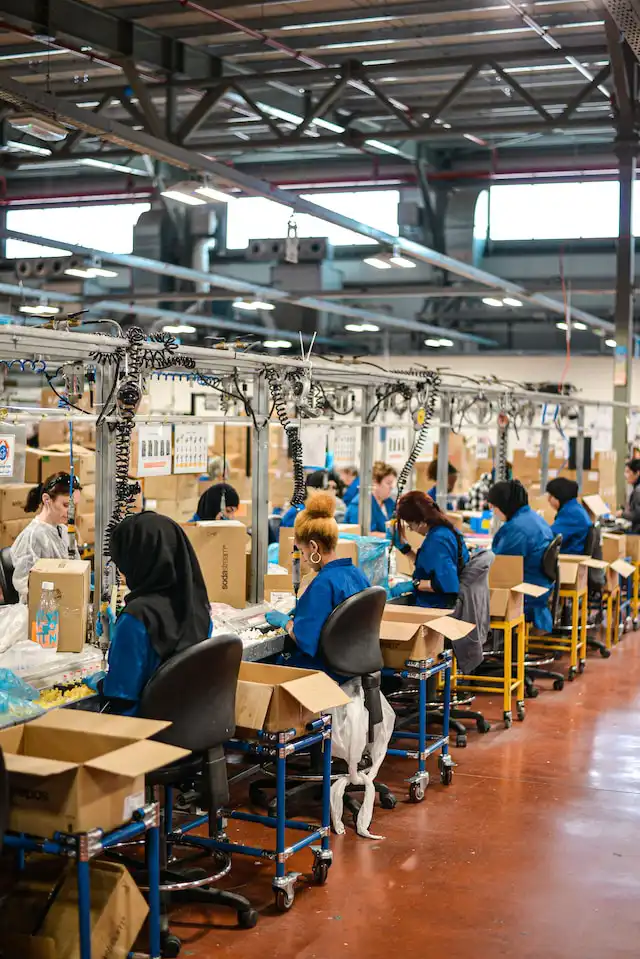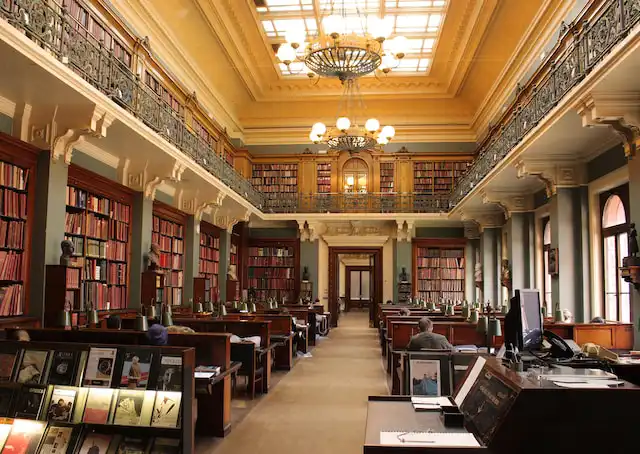
Malaysia Lighting Market Outlook to 2029
Region:Asia
Author(s):Anmol
Product Code:KR1501
April 2025
80-100
About the Report
Malaysia Lighting Market Overview
The Malaysia Lighting Market is valued at USD 468.2 million, based on a five-year historical analysis. The markets growth is driven by the expansion of smart cities, LED adoption policies, and infrastructure development across commercial, hospitality, and government sectors. In the current period, indoor lighting accounts for USD 290.3 million, while outdoor lighting contributes USD 177.9 million. Government-backed efficiency programs and corporate investments continue to boost penetration in urban spaces, data centers, and hotels.

The Central Region leads Malaysia lighting consumption, primarily due to rapid urbanization and high commercial activity in Selangor and Kuala Lumpur. Selangor alone contributes USD 93.2 million in lighting demand. The region benefits from government investment in public lighting, digital infrastructure, and redevelopment projects. The Southern Region follows with USD 83.8 million in usage, driven by expanding industrial parks and regional real estate developments.
The Sustainable Energy Development Authority (SEDA) mandates energy-efficient lighting products under the Energy Efficiency and Conservation Act. As of 2023, over 160 LED product SKUs have been registered under SEDAs Minimum Energy Performance Standards (MEPS), making compliance a key requirement for lighting suppliers bidding for government projects. Additionally, the Ministry of Local Government mandates lighting quality guidelines for highway and municipal development, ensuring uniform standards in procurement.
Malaysia Lighting Market Segmentation
By Product Type: The Malaysia Lighting Market is segmented by product type into indoor lighting and outdoor lighting. Indoor lighting holds the dominant market share under this segmentation due to its application across offices, healthcare, data centers, and hospitality. High-volume use of ceiling lights, panel lights, and strip lights in commercial developments contributes to this dominance, supported by retrofitting programs and rising LED penetration.

By End-User: The Malaysia Lighting Market is segmented by end users into government entities, hospitality, industrial users, office spaces, and stadiums. Government entities hold the largest share owing to nationwide lighting upgrade projects in highways, streets, public buildings, and infrastructure. Initiatives such as LED transition plans and surveillance lighting upgrades are spearheaded by municipal and federal agencies, driving the bulk procurement of lighting systems.

Malaysia Lighting Market Competitive Landscape
The Malaysia Lighting market is dominated by a combination of global lighting brands and regionally embedded manufacturers with specialized focus areas. Companies like LEDVance, Goodlite, and Iwasaki maintain a stronghold through extensive indoor lighting portfolios and strategic retail networks. Local players such as PrimeLux and SJ Lighting strengthen their presence by targeting public infrastructure projects and expanding across key regional clusters, enabling a competitive yet fragmented market structure.

Malaysia Lighting Market Analysis
Growth Drivers
Infrastructure Modernization and Urban Projects: Malaysia total development expenditure for 2024 has been allocated at MYR 90 billion, as outlined in the Ministry of Finance's Budget Statement. Within this, infrastructure initiatives such as the Light Rail Transit 3 (LRT3), Mass Rapid Transit 2 (MRT2), and industrial park development have accelerated demand for street lighting, tunnel lighting, and architectural facade lighting systems across key regions. These ongoing upgrades are directly fueling demand for high-output, energy-efficient lighting components.
Commercial Real Estate and Hotel Expansion: The Malaysian Investment Development Authority reported 1,144 approved commercial and hotel real estate projects in 2023, with a total committed investment of MYR 30.7 billion. Many of these projects focus on upgrading facilities in Kuala Lumpur, Johor Bahru, and Penang, integrating LED lighting systems across lobbies, meeting rooms, and guest floors. This consistent growth in premium hospitality and commercial sectors is significantly driving demand for ceiling, panel, and ambient lighting products.
Data Center and Digital Infrastructure Growth: Malaysia currently hosts over 600 data centers, with total power consumption surpassing 750 MW in 2023, according to the Malaysian Communications and Multimedia Commission. Rapid digitalization and server room expansion require round-the-clock, high-efficiency LED lighting systems for operational areas. The Cyberjaya and Johor Digital Gateway zones are seeing concentrated investments that contribute to steady uptake of lighting technologies tailored for industrial-grade control and precision illumination.
Market Challenges
Dependency on Imported Electronic Components: The Department of Statistics Malaysia recorded electronic imports at MYR 412.8 billion in 2023, of which over MYR 88 billion constituted semiconductors and LED modules. High reliance on these imported components exposes the lighting sector to global supply chain disruptions and exchange rate fluctuations, particularly impacting small-scale Malaysian manufacturers. This dependency limits scalability and raises the lead time for product assembly and delivery.
Logistical Barriers in East Malaysia: According to the Ministry of Transport, freight shipment costs to Sabah and Sarawak are on average 30% higher than Peninsular Malaysia. Limited port connectivity and regional warehousing infrastructure restrict timely lighting equipment supply. Additionally, power infrastructure in rural East Malaysia continues to lag, with electrification rates in remote districts like Pensiangan and Baram still below 75%, which hampers adoption of new lighting solutions in both commercial and public segments.
Malaysia Lighting Market Future Outlook
Over the next five years, the Malaysia Lighting Market is expected to experience sustained momentum driven by infrastructure investments, the shift to smart lighting systems, and LED replacement programs across public and private sectors. Growth will also be fueled by increasing construction of data centers, stadiums, and hospitality facilities which demand energy-efficient and intelligent lighting solutions. Integration with IoT and centralized lighting control is anticipated to become the new norm.
Market Opportunities
Rising Industrial Energy Consumption: Malaysias total industrial electricity consumption was recorded at 49,310 GWh in 2023 by the Energy Commission. Sectors such as rubber, electronics, and logistics have seen sharp increases in lighting utility, with warehousing expansions alone accounting for 6.3 million square meters of new area nationwide. This operational scale presents strong demand for low-bay, flood, and strip lighting systems. Current energy usage patterns make lighting modernization a cost-saving imperative across industrial estates.
Sports Infrastructure Redevelopment: Under the National Sports Vision 2030, Malaysia allocated MYR 420 million in 2023 for upgrading 67 stadiums and sports complexes. Projects such as the Bukit Jalil National Stadium LED overhaul and Kelantans multipurpose arena in Pasir Puteh involve integrated lighting systems for track zones, audience stands, and exterior grounds. These initiatives reflect a rising public sector investment appetite, opening up procurement opportunities for smart and outdoor lighting vendors.
Scope of the Report
|
By Product Type |
Indoor Lighting |
|
By End User |
Offices |
|
By Region |
North |
|
By Hotel Capacity |
Below 200 |
|
By Offices |
Corporate |
|
By Stadium |
North |
|
By Highway |
Street and Highway |
|
By Industrial Segmentation |
Warehousing |
Products
Key Target Audience
- Government and Regulatory Bodies (e.g., Ministry of Energy and Natural Resources, Malaysia LED Initiative)
- Urban Infrastructure and Highway Authorities (e.g., JKR Public Works Department)
- Lighting Equipment Distributors and Wholesalers
- Large-Scale Real Estate Developers
- Electrical Contractors and EPC Firms
- Investments and Venture Capitalist Firms
- Hospitality Chain Operators and Facility Managers
- LED Component Manufacturers and OEMs
Companies
Players Mentioned in the Report
- LEDVance
- PrimeLux Energy Sdn Bhd
- SJ Lighting
- Gruppe
- Goodlite (United U-Li)
Table of Contents
1. Malaysia Lighting Market Overview
1.1. Definition and Scope
1.2. Market Taxonomy
1.3. Market Growth Rate
1.4. Market Segmentation Overview
2. Malaysia Lighting Market Size (In USD Mn)
2.1. Historical Market Size
2.2. Year-On-Year Growth Analysis
2.3. Key Market Developments and Milestones
3. Malaysia Lighting Market Analysis
3.1. Growth Drivers
3.2. Restraints
3.3. Opportunities
3.4. Trends
3.5. Government Regulation
3.6. SWOT Analysis
3.7. Stake Ecosystem
3.8. Porters Five Forces
3.9. Competition Ecosystem
4. Malaysia Lighting Market Segmentation
4.1. By Product Type (In Value %)
4.1.1. Indoor Lighting
4.1.2. Outdoor Lighting
4.2. By End User (In Value %)
4.2.1. Offices
4.2.2. Government Entities
4.2.3. Independent Concessions
4.2.4. Industrial
4.2.5. Hotels
4.3. By Region (In Value %)
4.3.1. North
4.3.2. Central
4.3.3. South
4.3.4. East Coast
4.3.5. East Malaysia
4.4. By Hotel Capacity (In Value %)
4.4.1. Below 200
4.4.2. 200300
4.4.3. Greater than 300
4.5. By Offices (In Value %)
4.5.1. Corporate
4.5.2. Government
4.5.3. Healthcare
4.5.4. Banking
4.5.5. Data Centers
4.6. By Stadium (In Value %)
4.6.1. North
4.6.2. Central
4.6.3. South
4.7. By Highway (In Value %)
4.7.1. Street and Highway
4.7.2. Parking and Rest Area
4.7.3. Overhead Signage
4.7.4. Tunnel Lighting
4.7.5. Billboard
4.7.6. Surveillance Lighting
4.8. By Industrial Segmentation (In Value %)
4.8.1. Warehousing
4.8.2. Manufacturing
5. Malaysia Lighting Market Competitive Analysis
5.1. Detailed Profiles of Major Companies
5.1.1. LEDVance
5.1.2. PrimeLux Energy Sdn Bhd
5.1.3. SJ Lighting
5.1.4. Goodlite (U-Li Corp)
5.1.5. Iwasaki Electric
5.2. Cross Comparison Parameters (No. of Employees, Inception Year, Daily Production Capacity in Malaysia, Indoor vs Outdoor Product Ratio, Sales Employee %, Manufacturing Base Location, Distribution Coverage, Key Client Sector)
5.3. Market Share Analysis
5.4. Strategic Initiatives
5.5. Mergers And Acquisitions
5.6. Investors Analysis
5.7. Venture Capital Funding
5.8. Government Grants
5.9. Private Equity Investments
6. Malaysia Lighting Market Regulatory Framework
6.1. Energy Efficiency Certifications (SEDA & MEPS)
6.2. Local Government Lighting Compliance (JKR, KPKT)
6.3. Public Infrastructure Lighting Guidelines
6.4. Green Building Certification Standards
7. Malaysia Lighting Future Market Size (In USD Mn)
7.1. Future Market Size Projections
7.2. Key Factors Driving Future Market Growth
8. Malaysia Lighting Future Market Segmentation
8.1. By Product Type (In Value %)
8.2. By End User (In Value %)
8.3. By Region (In Value %)
8.4. By Application (In Value %)
8.5. By Sector (In Value %)
9. Malaysia Lighting Market Analysts Recommendations
9.1. TAM/SAM/SOM Analysis
9.2. White Space Opportunity Analysis
9.3. Procurement & Tendering Strategy
9.4. Regional Expansion Priorities
Disclaimer
Contact Us
Research Methodology
Step 1: Identification of Key Variables
The initial step included mapping all lighting market stakeholders in Malaysia, including manufacturers, project contractors, and government bodies. Variables such as product type, installation environment, and procurement volumes were identified through desk research using energy policy reports and lighting tender databases.
Step 2: Market Analysis and Construction
We assessed lighting consumption across verticals like hospitality, government, and industrial warehouses by compiling volume and value data from 2018 to 2023. Macro factors such as urban lighting coverage, LED transition rates, and electricity savings were analyzed to build market growth trajectories.
Step 3: Hypothesis Validation and Expert Consultation
Key assumptions about product demand, procurement shifts, and regional trends were validated through direct interviews with executives from seven local manufacturers and two urban planning bodies. These discussions provided insights into production constraints, pricing sensitivity, and public procurement preferences.
Step 4: Research Synthesis and Final Output
Final calculations were synthesized using bottom-up modeling of product-wise daily capacity, price per unit, and demand volumes across indoor and outdoor use cases. This approach enabled a comprehensive and data-validated view of the Malaysia Lighting Market across both commercial and infrastructure segments.
Frequently Asked Questions
01. How big is Malaysia Lighting Market?
The Malaysia Lighting Market was valued at USD 468.2 million, driven by LED adoption programs, rising infrastructure upgrades, and expanding demand across government, commercial, and hospitality sectors.
02. What are the challenges in Malaysia Lighting Market?
Challenges include high production costs for domestic players, dependency on imported lighting components, and regional distribution barriers in East Malaysia. Small-scale players also struggle with tender compliance and LED certification processes.
03. Who are the major players in the Malaysia Lighting Market?
Key players include LEDVance, PrimeLux, SJ Lighting, Goodlite, and Iwasaki. These firms lead the market with large production capacity, indoor-outdoor product coverage, and strong government tender presence.
04. What are the growth drivers of the Malaysia Lighting Market?
The market is propelled by national LED transition policies, redevelopment of commercial zones, hospitality industry expansion, and the demand for energy-efficient public lighting in highways, streets, and stadiums.
05. Which region leads the Malaysia Lighting Market?
The Central Region dominates the market due to heavy infrastructure investments in Selangor and Kuala Lumpur. It is supported by commercial real estate growth, government procurement, and municipal lighting projects.
Why Buy From Us?

What makes us stand out is that our consultants follows Robust, Refine and Result (RRR) methodology. i.e. Robust for clear definitions, approaches and sanity checking, Refine for differentiating respondents facts and opinions and Result for presenting data with story

We have set a benchmark in the industry by offering our clients with syndicated and customized market research reports featuring coverage of entire market as well as meticulous research and analyst insights.

While we don't replace traditional research, we flip the method upside down. Our dual approach of Top Bottom & Bottom Top ensures quality deliverable by not just verifying company fundamentals but also looking at the sector and macroeconomic factors.

With one step in the future, our research team constantly tries to show you the bigger picture. We help with some of the tough questions you may encounter along the way: How is the industry positioned? Best marketing channel? KPI's of competitors? By aligning every element, we help maximize success.

Our report gives you instant access to the answers and sources that other companies might choose to hide. We elaborate each steps of research methodology we have used and showcase you the sample size to earn your trust.

If you need any support, we are here! We pride ourselves on universe strength, data quality, and quick, friendly, and professional service.















